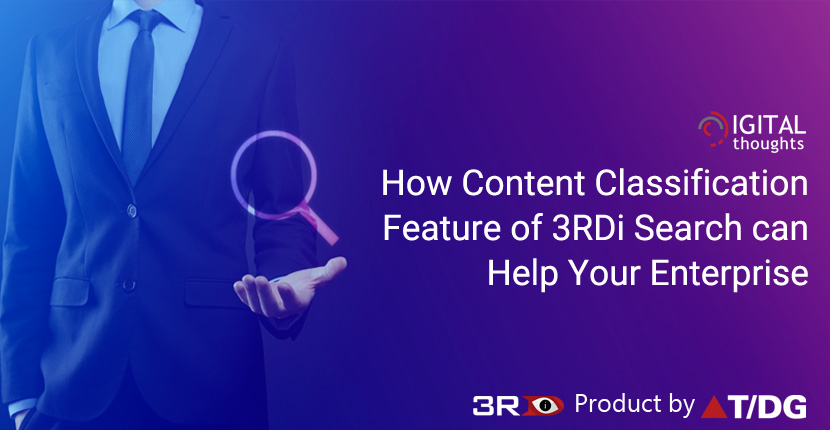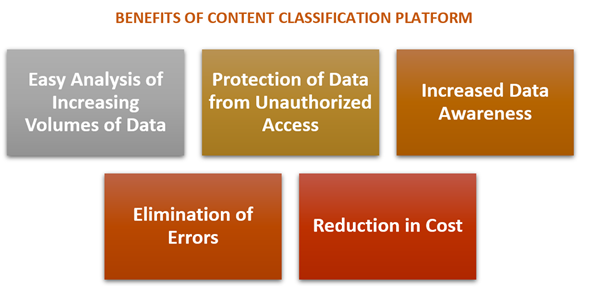Discover How Content Classification Feature of 3RDi Search can Help Your Enterprise

What is the definition of content classification? The process of classifying content into preset categories is known as content classification. It can either be done manually or using algorithms. While the manual approach is fine for little amounts of data, algorithms that make the operation easier and simpler are required when large amounts of data are involved, such as business data.

This is where smart text analysis tools of the future can help. For example, 3RDi Search, an advanced enterprise search tool, is built for the most complicated text analysis and assists organisations in gaining deep insights from enormous amounts of unstructured enterprise data. One of 3RDi Search's primary capabilities is content classification, which allows it to organise enormous amounts of unstructured data into predetermined categories.
Benefits of Content Classification Platform for Your Enterprise
The following are the key benefits that a content classification platform, or a text classification tool as it is otherwise known as, brings to your enterprise.

Easy Analysis of Increasing Volumes of Data
Every day, our businesses produce an ever-increasing volume of unstructured data. The use of email is on the rise all around the world. The number of ways to interact and collaborate is also increasing. SMS, instant messaging, social media feeds, and a plethora of other data sources generate huge volumes of data which can be exhausting at times. Add to it the fact that digital content has become a powerful medium, and you've got a lot more data than you can handle. As a result, the necessity for a sophisticated content classification platform is critical.
Protection of Data from Unauthorized Access
Organization data might contain information with varied levels of sensitivity, making classification necessary to prevent unauthorised access. Only an excellent content classification platform can make this happen. The enterprise data is classified as confidential, highly sensitive, public, and other categories by 3RDi Search. Artificial intelligence is used by the text classification tool to sort the data into distinct categories. This procedure assists the company in determining which data requires high security and which data can be made public.
Increased Data Awareness
It is easier to raise data awareness among the organization's employees if the data has been categorised into certain pre-defined categories. This helps employees in identifying sensitive data that they should handle with caution.
Elimination of Errors
When you use an advanced platform for content classification, such as 3RDi Search, it ensures that there are no errors and that the results are 100% relevant. Furthermore, with such large amounts of data to categorise, doing so manually would be difficult and would require an unnecessary amount of time. The task of content classification is made easier and more efficient by using a text classification tool that easily automates the process.
Reduction in Cost
Consider the subject of data archiving for future reference. One typical method is to store all of the data because it is difficult to determine which data is important. However, given the vast volumes of company data that are always growing, this strategy is not a long-term feasible solution. In this case, an advanced content classification platform will assist you in reducing storage costs by allowing you to save only the information that is worthy of being saved.
